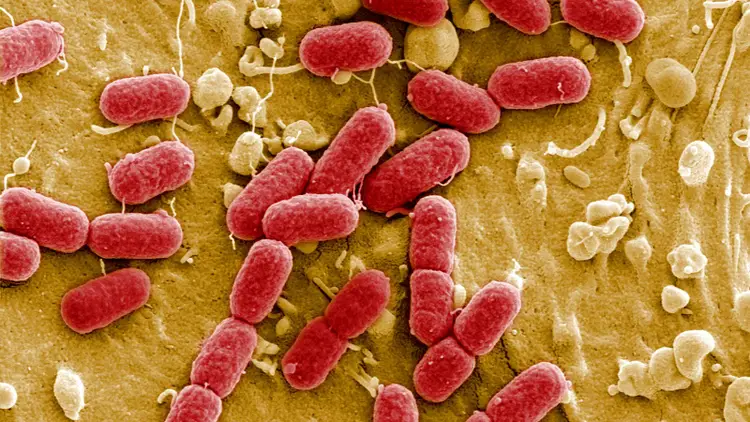Attempts to create synthetic 'mirror' bacteria must be stopped as it could kill off humans, scientists warn

A prominent team of researchers has urged that studies focused on creating artificial bacteria be stopped, as they could potentially represent a serious danger to human existence.
A group of 38 scientists from nine different countries has raised concerns about the possibility of creating "mirror bacteria," which are organisms made from biological molecules that have opposite shapes to those normally found in nature. They cautioned that this development could lead to disastrous consequences.
The specialists mentioned that a few researchers, motivated by their curiosity, had begun exploring the creation of these organisms. However, they believe that it will likely take at least ten years before this becomes a reality.
They mentioned that they need to halt their activities due to the "unmatched and often ignored dangers."
The results, shared in the journal Science, indicate that "our research indicates that mirror bacteria might escape several immune responses... which could potentially lead to deadly infections in humans, animals, and plants."
We can't ignore the possibility that a mirror bacterium could become an invasive species in various ecosystems, potentially leading to widespread and deadly infections in many plant and animal species, including humans.
"Even a pathogen that targets a smaller variety of hosts and can only invade a few specific ecosystems might still lead to significant and irreversible damage."
The team of researchers features Professor Patrick Cai, a specialist in synthetic genomics and biosecurity from The University of Manchester.
He mentioned, "Although mirror bacteria are currently just a theoretical idea and something we probably won't encounter for several decades, we have a chance to think ahead and address potential risks before they occur."
These bacteria might be able to dodge the immune system, withstand natural threats, and disturb ecosystems. By highlighting this issue now, we aim to steer research towards approaches that prioritize the safety of humans, animals, and the planet.
Check out additional coverage from Sky News: Bird flu may be passing to horses, and NASA has postponed its primary moon landing initiatives.
A reflective existence may not justify the potential dangers involved.
It's puzzling why life exhibits a preference for one side or the other, all the way down to the molecular scale.
The structure of DNA always twists in a clockwise direction.
Extend your right hand as if you're about to shake hands. Then, wrap your fingers around your thumb; that's the way it always twists, regardless of the type of species or cell involved.
On the other hand, amino acids, which are the fundamental components of proteins, have a left-handed structure.
Handedness is so widespread that it likely traces back to the very beginnings of life on Earth, emerging from the primordial conditions that formed our planet.
However, the molecules can also be found in a mirrored version of themselves. It's likely that life, by sheer luck, developed in a specific configuration.
It's intriguing to consider the possibility that life, if it exists somewhere else in the universe, might be organized in a completely different way.
The left glove corresponds to our right hand, and the right glove corresponds to our left. When it comes to handedness on Earth, it only becomes relevant to scientists when they attempt to produce synthetic life that reflects this mirrored arrangement.
Left-handed amino acids have a specific folding pattern, which also applies to the proteins found in viruses and bacteria.
If a man-made creature were to break free from a laboratory – and it’s a possibility you can't ignore – it would be undetectable to the natural mechanisms that protect against threats.
Without our immune systems, vaccines, and antibiotics would serve no purpose. The consequences could be catastrophic, not just for us, but for numerous other species as well.
Developing mirror versions of life forms could provide valuable insights into chirality, a term used to describe this phenomenon. However, when esteemed Nobel Prize laureates caution against the potential dangers, it's wise to take their advice seriously.
In their journal entry, the researchers expressed that although they were "first doubtful about the potential dangers of mirror bacteria, we are now seriously worried."
They mentioned that these types of organisms would represent a significant shift from what we currently understand about life. They also urged for more detailed examination of their results and for further studies to enhance our knowledge of these potential dangers.
"Nonetheless, without strong proof to support their safety, we believe that mirror bacteria and similar organisms should not be produced."
Jack Szostak, one of the researchers involved in the study and a Nobel Prize-winning chemist from the University of Chicago, expressed concern, stating, "If strong mirror bacteria were developed and either released into the natural environment or got out from controlled settings, it could lead to devastating and permanent consequences."
He mentioned that it could be "much more serious than any difficulties we've faced before and well beyond what we can handle."











































